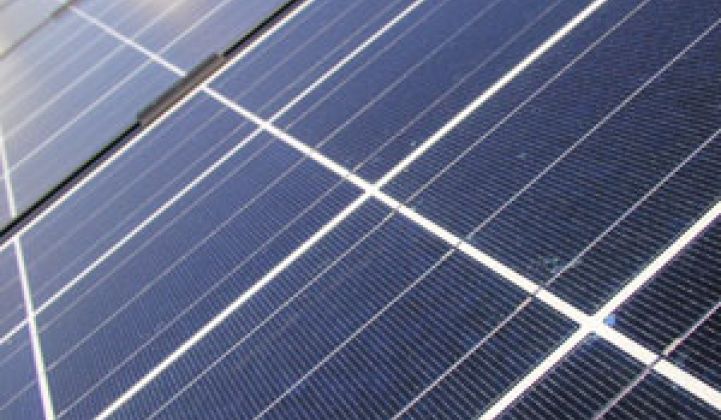The European Patent Office dealt a blow to Oerlikon Solar on Tuesday by revoking a patent licensed by the Swiss company for manufacturing thin-film panels.
The patent office ruled that the patent, held by the University of Neuchatel in Switzerland, was invalid. The decision is bad news for Oerlikon, which holds the exclusive license for the patent and filed suit last year against Sunfilm for allegedly infringing on the patent (see Oerlikon Solar Sues Sunfilm).
Oerlikon develops and sells factory equipment for making amorphous silicon solar cells and for assembling the cells into panels for installation. The company competes fiercely with Applied Materials, which has sold factory equipment to Germany-based Sunfilm.
An Oerlikon spokesman said the company plans to issue a response to the patent office's decision tomorrow.
Applied, based in Santa Clara, Calif., sees the decision as a win.
"Certainly we see this as a positive sign from the patent side," said Applied spokesman Dave Miller.
Sunfilm couldn't be reached immediately for comment.
The patent describes the design and engineering of tandem junction solar cells, which use a layer of amorphous silicon and a second layer of microcrystalline silicon for converting sunlight into electricity. This approach, also called micromorph technology, is an improvement from the first generation technology that uses only one layer of amorphous silicon.
Oerlikon has claimed that the patent from Neuchatel gives it the exclusive rights to make micromorph products. The claim led to the dispute filed with the European Patent Office by Sunfilm, Q-Cells in Germany and Kaneka in Japan.
Although Sunfilm's equipment came from Applied Materials, Oerlikon said in the past that it had no plans to sue Applied as well. Instead, Oerlikon has said it would pursue legal actions against solar panel makers who use someone else's factory equipment for making micromorph tandem junction cells.
The patent office's decision on Tuesday isn't likely to be the end of the dispute. The University of Neuchatel could appeal the decision, Miller said.
Sunfilm, in the meantime, is building a second production line that will be able to produce up to 60 megawatts of solar panels per year. Commercial production from the new line is scheduled for start later this year. The company already is producing tandem junction solar cells and panels from its first production line, which can produce over 60 megawatts of solar panels.
Sunfilm was created by Good Energies and NorSun in 2006.
Join industry leaders and influencers at Surviving the Shakeout: Greentech Media’s 2009 Solar Industry Summit in Phoenix, Ariz., April 14–15.




